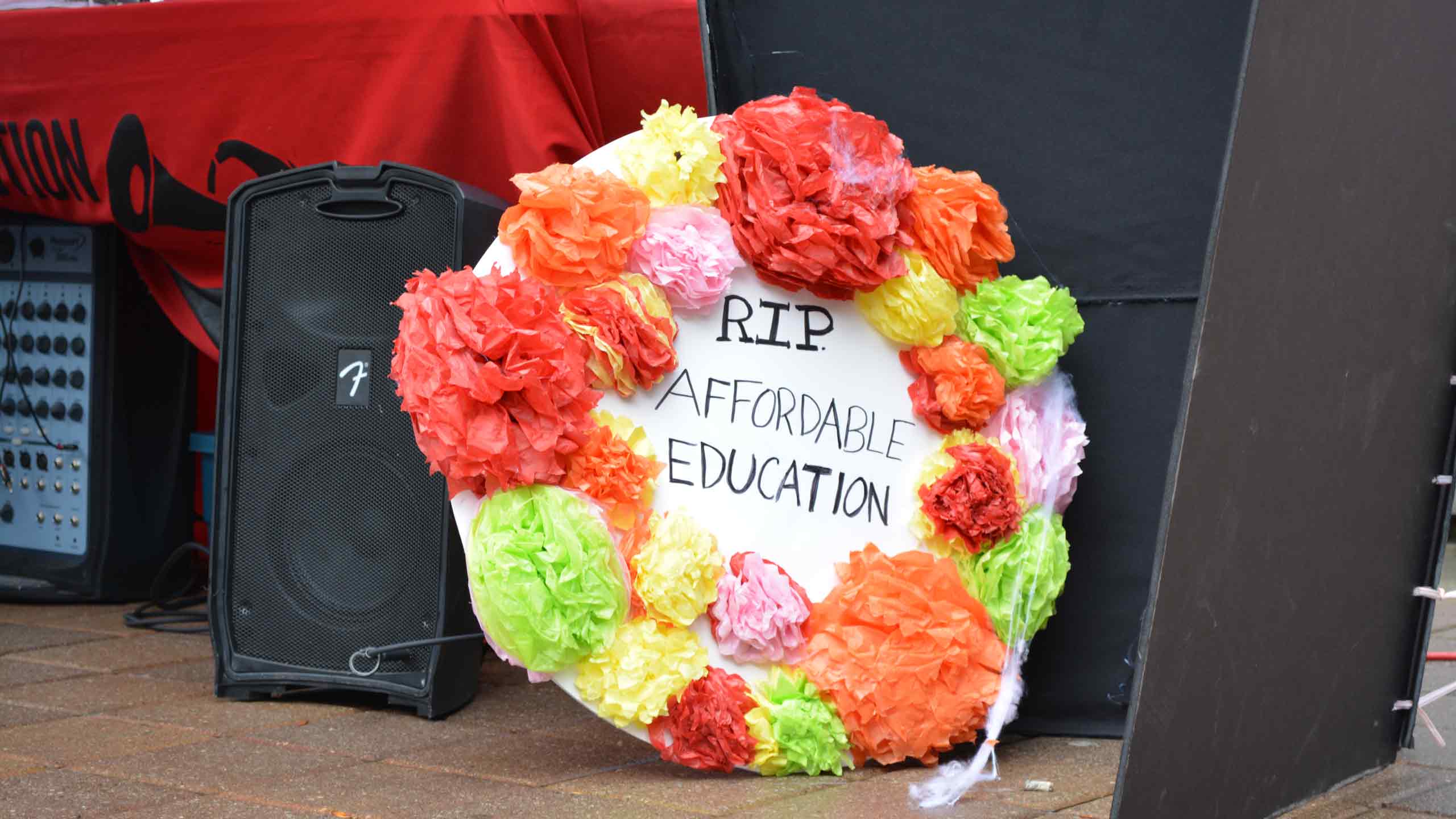By Nicole Schmidt
I logged onto my OSAP account earlier today for the first time in 10 months. It’s something I’ve been avoiding, mostly because part of me wanted to believe that ignoring my debt would make it go away.
It didn’t. Turns out I owe the government more money than I initially thought, and now that I’m a graduate who supposedly lives in the “real world,” I have exactly 68 days left to bask in interest-free glory.
We’ve all heard the statistics. University is fucking expensive, and it gets worse every year. In 1992, tuition in Ontario cost roughly $2,105. Now, it’s upwards of $8,000. I could bitch about how the post-secondary model in most European countries is infinitely better than ours, or about how Bernie Sanders is the only major politician who seems to care about free education, but I’m stuck here with my debt, so those things don’t matter. What does is what’s happening right here, right now.
Advocacy for lower tuition fees at Ryerson goes back a whole lot longer than I’ve been here. In recent years, the emphasis has been on the former Ryerson Students’ Union (RSU) affiliated initiative, Freeze the Fees.
As far as campaigns go, this one was far from tame. There was the “tent city,” set up in front of Jorgenson Hall by RSU executives as an attempt to get the university to create an alternative budget. There was the pro-Ryerson group, Rise for Ryerson, whose members got in a yelling match with Freeze the Fees supporters outside of a Board of Governors meeting, just before the then-president announced he couldn’t (at least not single-handedly) stop rising fees. Then of course there was the engineering students’ mock campaign, “Freeze the Peas,” which involved green-giant approved costumes and canned goods.
Now here we are, another year, another campaign. I’m a skeptic. As much as I’d like to have faith in fighting worthy causes and slaying dragons, the realistic part of me knows that it’s always going to take more than making a sign covered in glitter-glue, yelling at people on the street, or plastering posters on telephone poles. Fight the Fees, despite having a similar set of goals, isn’t a student-union-centric initiative. Action isn’t happening in board rooms, it’s happening off campus, out in the “real world.” These are regular students who give a fuck, and they want to make things better for you.
Campaigns remind us of things that are worth talking about and, more importantly, they give us a starting point. When the Canadian government announced earlier this year that low-income families would receive tuition grants, the change was, in part, attributed to student advocacy.
Regardless of whether or not you want to invest in a megaphone and dive head-first into a campaign, odds are you’ll continue to care about tuition fees (and if you don’t, consider this: before long, you’re going to be the one checking OSAP and wondering how your bank account became as empty as your soul). So please, speak your mind, complain, and know that your opinion counts for something.












Leave a Reply